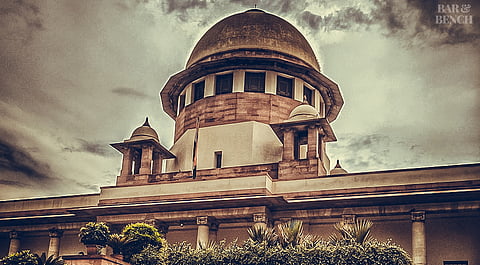
- News
- Columns
- Interviews
- Law Firms
- Apprentice Lawyer
- Legal Jobs
- हिंदी
- ಕನ್ನಡ

A petition has been filed in the Supreme Court challenging the constitutionality of Section 125 of the Criminal Procedure Code (CrPC), which governs the law relating to maintenance.